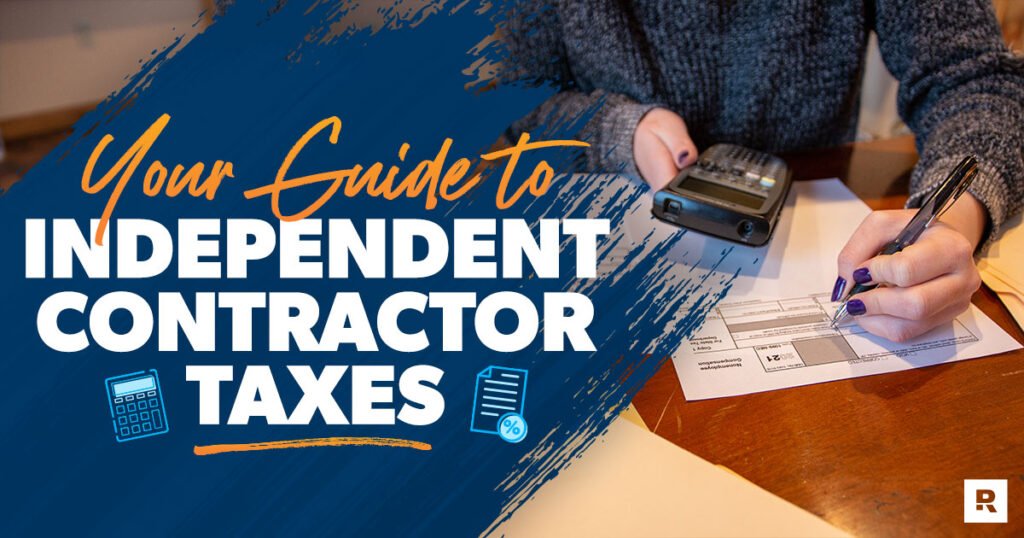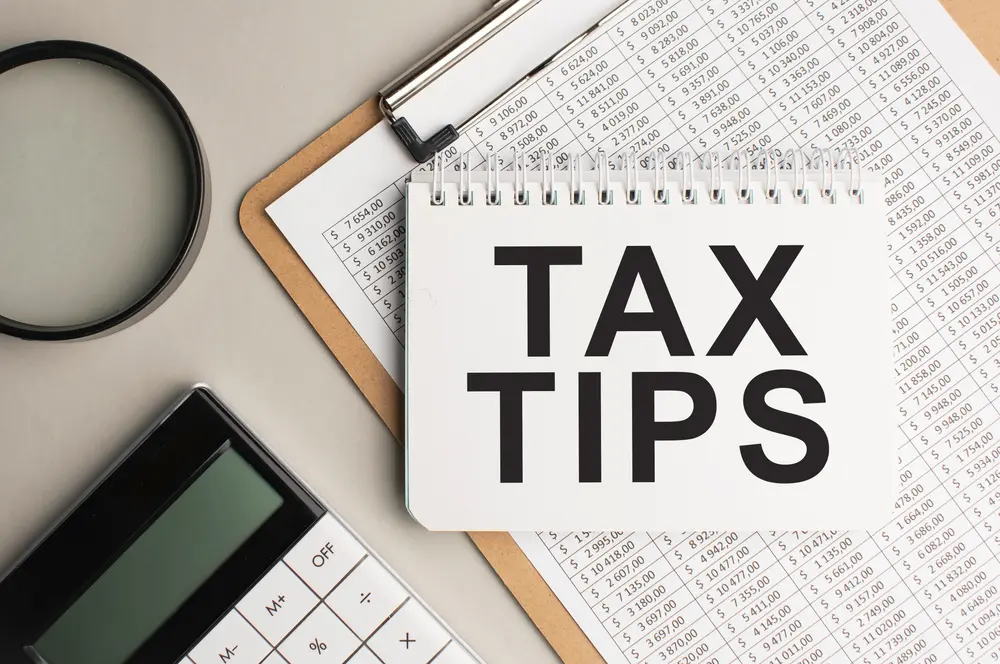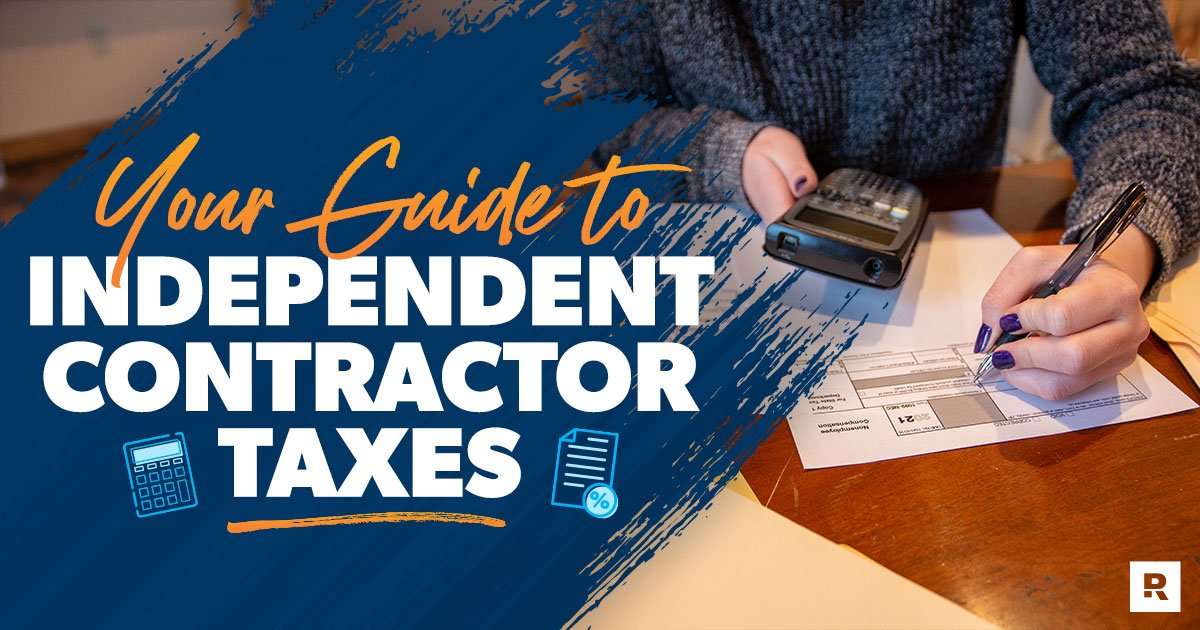Navigating taxes as an independent contractor can often feel overwhelming, especially when you’re handling every aspect of your business, from client work to finances. Unlike traditional employees, independent contractors are responsible for their own taxes, which means understanding how to manage them effectively is key to minimizing your liability. In this step-by-step guide, we’ll walk you through essential independent contractor tax tips that will ensure you stay organized, compliant, and on top of your tax responsibilities.
Also Read: Understanding Business Tax Audit Procedures

What Is an Independent Contractor?
Before diving into the independent contractor tax tips, it’s important to define who an independent contractor is. An independent contractor is a self-employed individual who provides services to other businesses or individuals under a contract. This includes freelancers, consultants, gig workers, and anyone who doesn’t receive a regular paycheck or employee benefits like health insurance or retirement plans.
As an independent contractor, you’re responsible for managing your income, expenses, and taxes. This means you’ll need to proactively handle your tax filings and ensure you’re saving enough to cover your tax obligations.
Why Independent Contractors Have Unique Tax Responsibilities
Independent contractors face distinct challenges when it comes to taxes:
- No Tax Withholding: Unlike regular employees, your clients do not withhold taxes from your payments. You need to set aside money to pay taxes on your own.
- Self-Employment Taxes: Independent contractors pay both the employer and employee portions of Social Security and Medicare taxes (self-employment tax), which can add up to 15.3%.
- Tax Deductions: While you won’t get traditional employee benefits, you are eligible for a range of deductions to lower your taxable income.
By understanding these unique tax responsibilities, you can take steps to reduce your liability and avoid costly mistakes.
Step-by-Step Independent Contractor Tax Tips
To help you stay on top of your taxes, here are the independent contractor tax tips you need to follow, step-by-step:
Step 1: Keep Accurate Records of Income and Expenses
One of the most critical independent contractor tax tips is to maintain detailed records of your income and expenses. This will not only help you file accurate tax returns but also ensure you’re able to take full advantage of any deductions available to you.
- Track all sources of income: Be sure to keep records of all the money you earn from clients, including any 1099 forms you receive.
- Document your expenses: Any expense that is necessary to your business operations is potentially deductible. These may include office supplies, marketing costs, software subscriptions, and more.
Tip: Use accounting software or apps designed for freelancers to simplify the process, such as QuickBooks Self-Employed or FreshBooks.
Step 2: Pay Your Estimated Taxes Quarterly
Since taxes aren’t withheld from your income as an independent contractor, you’re required to make quarterly estimated tax payments. These payments cover both your income tax and self-employment tax.
- Know your payment schedule: Estimated tax payments are due in four installments: April 15, June 15, September 15, and January 15.
- Calculate your estimated taxes: Use IRS Form 1040-ES to estimate how much you owe based on your projected income.
Tip: If you anticipate a significant change in your income or deductions, update your quarterly payments to avoid underpayment penalties.
Also Read: Corporate Tax Filing Deadlines

Step 3: Maximize Your Deductions
One of the biggest advantages of being an independent contractor is the ability to deduct business expenses, reducing your taxable income. Here are some of the most common deductions you can claim:
- Home Office Deduction: If you work from home, you can deduct a portion of your rent, utilities, and other home-related expenses.
- Business Expenses: Expenses like office supplies, travel, client meals, and equipment purchases are deductible.
- Health Insurance: If you pay for your own health insurance, you can deduct premiums for yourself, your spouse, and dependents.
- Retirement Contributions: Contributing to a retirement account, like a Solo 401(k) or SEP IRA, not only helps you save for the future but can also reduce your taxable income.
Tip: Keep receipts for all business-related expenses and track them throughout the year. You may want to use an app to scan receipts directly into your accounting software for easy reference.
Step 4: Understand Self-Employment Taxes
As an independent contractor, you must pay self-employment taxes, which include both the employee and employer portions of Social Security and Medicare taxes. This totals 15.3% of your net earnings.
- Social Security: 12.4% of your earnings are allocated for Social Security.
- Medicare: 2.9% of your earnings go to Medicare, with an additional 0.9% for high-income earners.
Tip: You can deduct half of your self-employment taxes on your tax return, which can lower your taxable income.
Step 5: Set Up a Retirement Plan
As a self-employed individual, you don’t have access to employer-sponsored retirement plans, but that doesn’t mean you can’t save for retirement. There are several options for independent contractors:
- Solo 401(k): This plan allows you to contribute as both an employer and an employee, potentially saving you more for retirement.
- SEP IRA: The Simplified Employee Pension (SEP) IRA allows for large contributions based on a percentage of your income.
Tip: Contributing to a retirement account not only helps you save for the future but also reduces your current taxable income.
Step 6: Separate Personal and Business Finances
Another essential independent contractor tax tip is to keep your personal and business finances separate. This will make it easier to track your business expenses, file taxes, and protect your personal assets.
- Open a business bank account: This ensures that your business income and expenses are not mixed with personal finances.
- Use a separate credit card: A business credit card makes it easy to track business expenses and helps improve your business credit score.
Tip: This also helps in the event of an audit or if you need to prove your expenses to the IRS.
Step 7: Consult a Tax Professional
Navigating taxes as an independent contractor can be complex, so it’s often a good idea to consult a tax professional. They can help you:
- Ensure that you’re taking full advantage of available deductions.
- Guide you in setting up quarterly estimated payments.
- Advise you on how to plan for the future, including retirement and tax-saving strategies.
Tip: Even though hiring a tax professional comes at a cost, the peace of mind and potential savings they can provide are well worth it.
Frequently Asked Questions (FAQs)
1. How do I know if I’m classified as an independent contractor?
You are an independent contractor if you work for yourself, offering services to others without receiving employee benefits. Unlike employees, independent contractors have control over how, when, and where they work.
2. Can I deduct my home office as an independent contractor?
Yes, if you use a portion of your home exclusively for work, you can deduct a portion of your rent, utilities, and other related expenses.
3. What is self-employment tax, and how does it affect me?
Self-employment tax is the combined amount of Social Security and Medicare taxes that independent contractors must pay. It totals 15.3% of your net earnings.
4. How do I file taxes as an independent contractor?
Independent contractors file taxes using Form 1040, including Schedule C for business income and expenses, and Schedule SE for self-employment tax. Be sure to track your income and expenses throughout the year to ensure an accurate filing.
5. What tax deductions can I claim as an independent contractor?
You can deduct business-related expenses, including home office costs, travel, meals, and retirement contributions. Always keep detailed records of your expenses throughout the year.
Conclusion
Navigating taxes as an independent contractor doesn’t have to be overwhelming. By following these independent contractor tax tips, you can ensure you’re staying compliant, minimizing your tax liability, and setting yourself up for long-term success. From maintaining accurate records to leveraging deductions and planning for retirement, these steps will help you manage your taxes effectively. Don’t hesitate to seek professional advice to ensure you’re on the right track—your financial future depends on it!

1 thought on “Independent Contractor Tax Tips: A Step-by-Step Guide to Mastering Your Taxes in 2024”